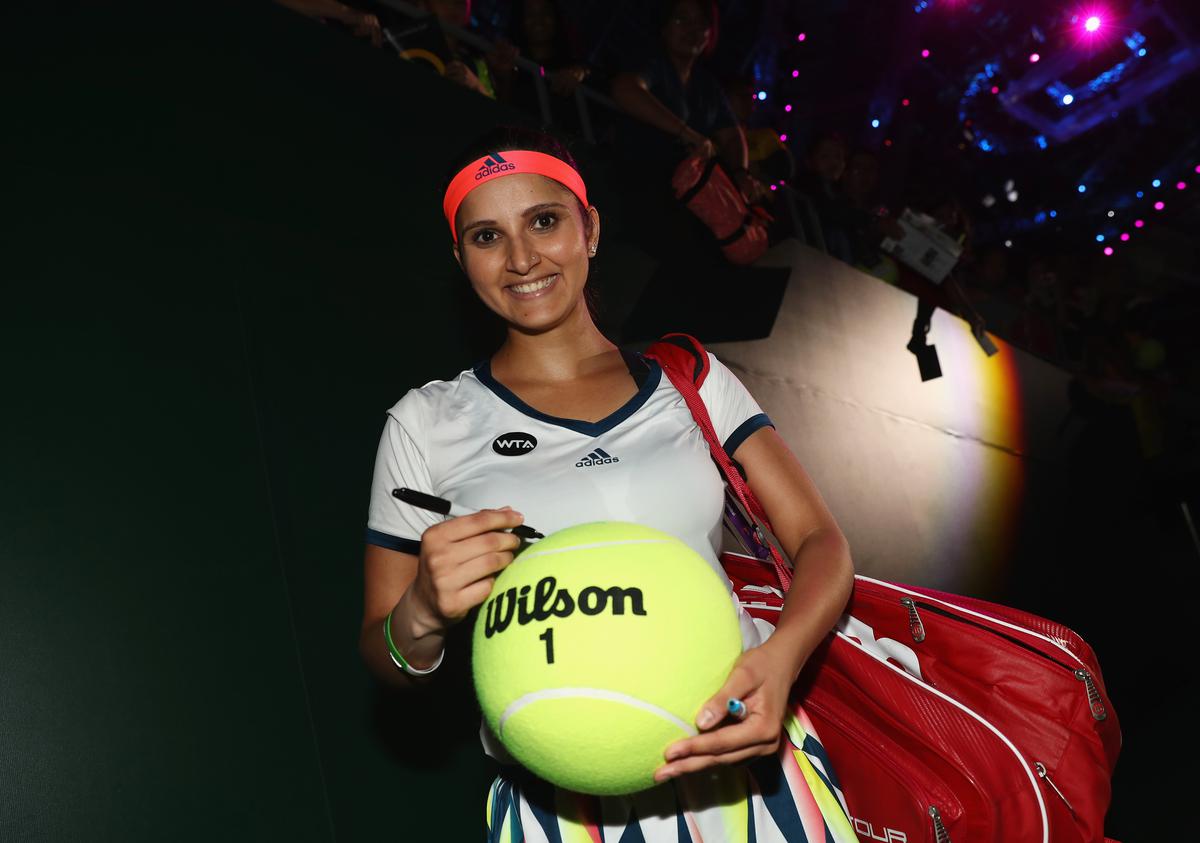Right strategy: Sania Mirza’s unflinching and courageous angle paid wealthy dividends.
| Photo Credit: AFP
For a skilled athlete, day by day is an train within the inconceivable. Doubts creep, demons rage, the physique wears and you lose far more than you win. To preserve a veneer of stoicism, stay fuss-free on and off the pitch, have a perspective and codify the trail to glory is a job past most.
Sania Mirza managed to do that for practically 20 years, in a lonely, mentally taxing and bodily draining sport. She didn’t fairly obliterate everybody on a tennis courtroom. But at her peak, she rose above the remaining and nonetheless towers above each different Indian ladies’s tennis participant.
Sania first shot to prominence after the flip of the millennium when the Williams sisters – Venus and Serena – enjoying with hitherto unseen energy and power, and all-round shot-making, had been altering the sport. For legions of Indian followers, who fantasised watching the contact artists glaze round pristine grass courts, it was a brush with new actuality.

India’s international icon: Sania Mirza has impressed a technology of tennis gamers.
| Photo Credit:
Getty Images
But Sania didn’t flinch, and along with her in-your-face angle percolating to her tennis, she reached the third spherical on the Australian Open in 2005 on her Slam singles debut. She was neither balletic nor blessed with quick toes, however she hit ferociously, particularly the forehand, and possessed the innate means to beat excessive nerves.
Sania peaked at No. 27, the best for an Indian lady, and for a massive portion of a four-year interval (2005-08), she was within the top-32. Between February 2005 and September 2006, she clinched her lone WTA title (Hyderabad) and earned three top-10 wins.
‘Absolutely iconic place’
“That she was in the top-30 in singles, apart from all the doubles highs later, puts her in an absolutely iconic place,” reputed coach Nandan Bal advised The Hindu final yr when Sania first introduced her intention to retire.
“More than anything, she was one player who played better as the match got closer and tighter. I mean, she was ready to take on the world, a girl who was not afraid of anything.”
In mid-2012, a persistent wrist harm pressured her to change to doubles. But she strutted on, inventing newer methods to excel. Quick reflexes, magic palms and quick anticipation are stipulations in elite doubles, and successful streaks are as tenuous as a home of playing cards.
Yet, she spent 91 weeks because the World No. 1, gained six Grand Slam titles (three in doubles and three in blended doubles) to go along with six runner-up finishes, together with on the 2023 Australian Open, her final Major look, three full years after her return from maternity.
Longevity
If her 43 WTA doubles titles unfold over 17-and-a-half years (2004-21) spelt longevity, the back-to-back WTA Finals crowns (2014 and 2015) was proof of the stratospheric ranges of tennis she might attain.
“When we chose to play tennis professionally, a lot of people asked our parents what they were doing and said we couldn’t make careers,” recalled Ankita Bhambri, Sania’s peer, teammate and as soon as a coach in India’s Billie Jean King Cup group.
“Now people are willing to take that risk [because of Sania]. They don’t hold back just because they are girls. There was motherhood and that was a huge inspiration. She has definitely shown everyone the way.”


